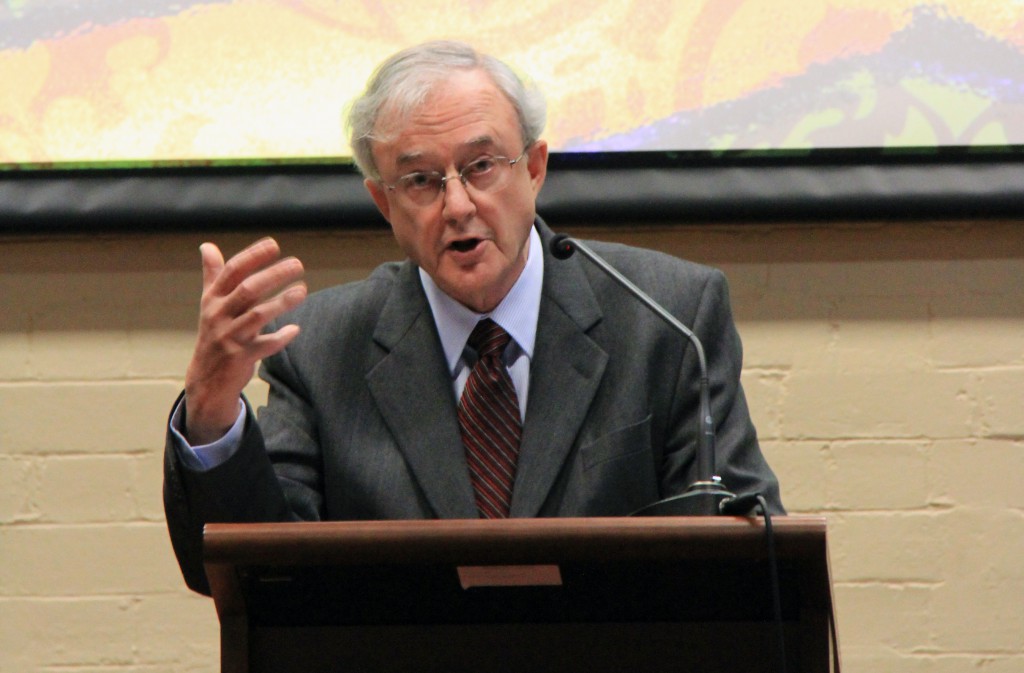
The University of Notre Dame (UNDA) has challenged those who oppose views presented in their public lectures to raise their opposition inside, rather than outside, the lecture theatres.
UNDA was responding to a group of protestors who objected to visiting philosopher, Professor John Finnis’ arguments on same-sex marriage and euthanasia.
Prof Finnis’ lecture on June 4 at the Fremantle campus was disrupted by a group of Equal Love WA protestors who chanted loudly and banged on lecture theatre walls during the first part of the talk.
In a statement on its Facebook page, UNDA’s Centre for Faith, Ethics and Society (CFES) said it was “disappointed that protestors elected to raise opposition from outside … rather than listening to Professor Finnis speak and raising opposition directly in the Q&A”.
“Part of the task of a Catholic university is to give voice to the values upheld and defended by the Catholic Church in a considered, intellectual manner,” the statement said, welcoming protestors “to raise their opposition in a manner that allows for genuine debate.”
Tom Gourlay attended the lecture and said there were between 25 and 30 protestors present.
“They were chanting for about 20 minutes which did make it difficult to hear the first part of his talk,” he said.
Mr Gourlay was surprised protestors remained outside rather than attending the lecture to hear Prof Finnis’ position and arguments.
Contrary to protestors’ claims, Prof Finnis did not present a discriminatory message but was “engaging in a reasoned debate”, according to Mr Gourlay. During the lecture, Opposing ‘Death with Dignity’ and ‘Same-Sex Marriage: Faith or Reason?, Prof Finnis said it was important to use rational language in the discourse of public debate.
“If we are to keep our critical freedom, we can’t accept ambiguous and euphemistic slogans such as ‘death with dignity,’” he said.
“Conscience judges not by word play, nor by the play of traditional or any other majoritarian or elite power, opinion, attitude or will, but by looking for reason.”
Regarding euthanasia, Prof Finnis said the prohibition of deliberate killing is the cornerstone of a civil, safe and functional society.
“Unless doctors are to be committed to kill anyone and everyone who makes a stable and competent request for death, they are going to have to proceed on a classification of lives as worth living or not worth living,” he said.
“Such a classification would create a new structure of radical inequality with much resulting injustice and a gravely damaging impact on the common good.”